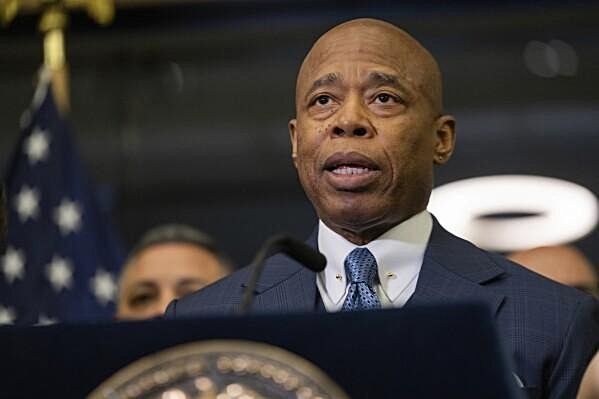New York City Comptroller Brad Lander has recently joined the mayoral Democratic Party primary, posing a serious challenge to incumbent Mayor Eric Adams. With the entrance of three progressive challengers, including Lander, former comptroller Scott Stringer, and New York State Sen. Zellnor Myrie, there is a belief among political observers that the current climate is favorable to challengers within the party. These three challengers hold views that differentiate them from Adams on various issues, such as public safety, police and criminal justice reform, and the migrant influx that has strained emergency housing and other social services in the city.
The timing of Lander’s decision to enter the Democratic primary for mayor indicates his intention to capitalize on a potential left-wing backlash in New York City if former President Donald Trump regains the White House, according to John Ketcham, director of cities policy at the Manhattan Institute.
However, Adams has dismissed his challenger, referring to Lander as “the loudest person in the city.” Lander has been a vocal critic of Adams and has also criticized New York Governor Kathy Hochul during his time as comptroller. Lander’s major policy differences with Adams seem to be centered around the migrant crisis and related fiscal issues.
Jonathan Nagler, a professor of politics at New York University, believes that running against Adams from the left is not unrealistic, especially considering the vast majority of New York City voters supported President Joe Biden in 2020. Keith Naughton, principal of Silent Majority Strategies, also warns that no mayor is safe in a city as diverse and politically unstable as New York.

Jewish voters and pro-Israel organizations are expected to strongly support Adams due to his pro-Israel stance, which presents a challenge for Lander and other progressive candidates who are caught between their pro-Palestinian base and the need to denounce anti-Semitism and anti-Zionism.
It is important not to view New York as solely driven by Upper East Side liberals, as there are also conservative, working-class neighborhoods that play a significant role in the city’s politics, says Naughton.
Regarding public safety, Lander’s advocacy for reallocating funds from the NYPD to social services and community programs has faced criticism from members of the law enforcement community and the public, who see it as a defunding the police measure with a different wrapping.
While the sympathy for migrants is prevalent in New York, the fiscal realities of resettling migrants in the city cannot be ignored, especially considering the high cost incurred, which the mayor estimates to be over $700 million.

Additionally, State Sen. Myrie differs significantly from Adams on policing and has supported repealing a bill that keeps officers’ disciplinary records sealed to the public.
The ranked-choice voting system employed in New York City primaries reduces the risk of splitting or spoiling the progressive vote, giving candidates like Stringer and Myrie a better chance to compete against Adams. It remains to be seen whether Lander’s rivals on the left will encourage their supporters to vote for other progressives in the second or third-place slots, forming a united front against the mayor.
The mayor’s office did not respond to a request for comment at the time of publication.
Discover more from Tension News
Subscribe to get the latest posts sent to your email.

